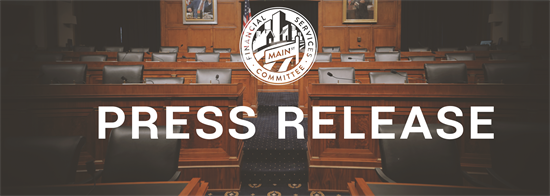Two More Bipartisan Financial Services Bills Pass House
Washington,
April 11, 2018
WASHINGTON – Today, the House of Representatives passed two more bipartisan bills from the Financial Services Committee that improve stress test requirements for banks and reform the designation process for nonbank financial institutions. “At the end of the day, it’s not really the banks that are the subject of these regulations. At the end of the day, it’s their customers,” said Financial Services Committee Chairman Jeb Hensarling (R-TX). “What the Financial Services Committee and this House has to do is ensure that there is affordable and available credit to help fund people’s American dreams. That’s what these important bipartisan bills will help achieve.” H.R. 4061, the Financial Stability Oversight Council Improvement Act of 2017 – sponsored by Representative Dennis Ross (R-FL) and cosponsored by Representative John Delaney (D-MD), the bill would reform the Financial Stability Oversight Council (FSOC) designation process to enhance the transparency and procedural fairness of the nonbank systemically important financial institutions (SIFI) designation process, and thereby address bipartisan concerns regarding the FSOC’s articulated approaches that were previously used to designate or consider the designation of nonbanks. While the FSOC will retain the power to make a determination regarding any nonbank financial company, H.R. 4061 would afford affected institutions a greater opportunity to be heard by the functional regulator and to modify its business, structure, or operations prior to designation. This bill passed 297-121. H.R. 4293, the Stress Test Improvement Act of 2017 – sponsored by Representative Lee Zeldin (R-NY), the bill would streamline the current regime for stress testing banks, would make the company-run stress test an annual exercise, and would reduce the number of supervisory scenarios from three to two. Doing so will simply reduce redundancy by allowing institutions to determine whether they have sufficient capital to absorb losses and support operations during the harshest economic conditions. This bill would also limit the ability for the Federal Reserve to object to a company’s capital plan based solely on qualitative deficiencies. This is a particular area of concern that must be addressed because the GAO has determined “[t]ransparency is a key feature of accountability and this limited disclosure may hinder understanding of the CCAR program and limit public and market confidence in the program and the extent to which the Federal Reserve can be held accountable for its decisions.” The bill was originally Section 152 of H.R. 10, the Financial CHOICE Act of 2017, which passed the House in June 2017. This bill passed 245-174. ### |


